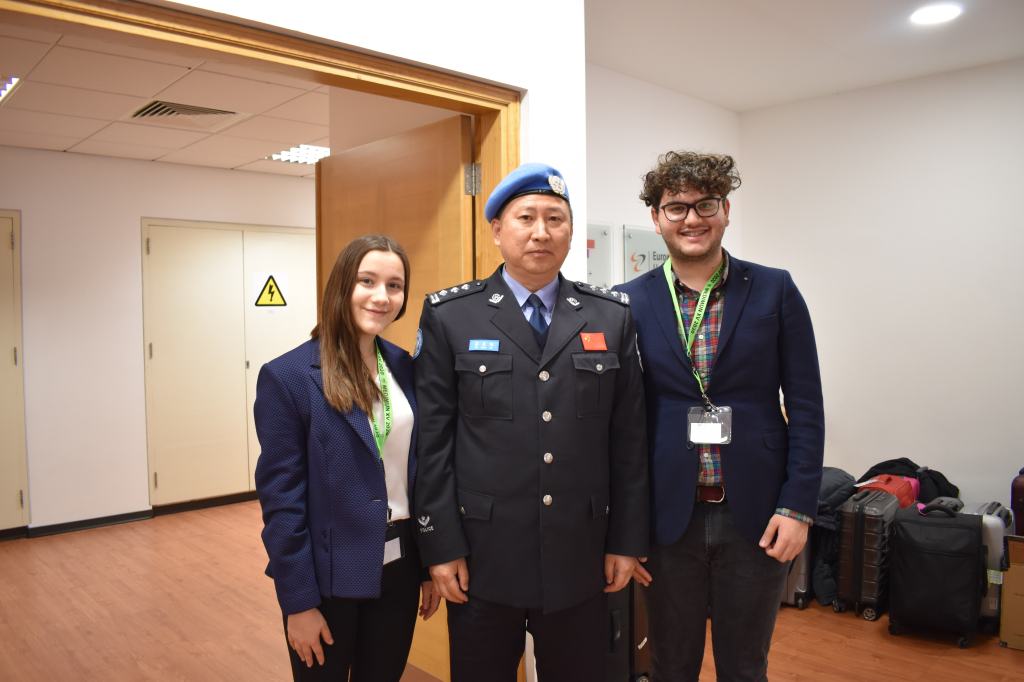BY: Huseyin Mermercioglu


Can you describe your role in the UN as the Chief Superintendent?
As a matter of fact Chief Superintendent is my rank at the national service. In the UN we don’t have this ranking system. Currently, my role is the Acting Senior Police Adviser which has the abbreviation the ASPA. The ASPA is the Head of the Police Component. Our mission in Cyprus is called the UN peacekeeping force in Cyprus. The UN Mandate was authorised by the Security Council in 1964. So, we’ve been here for 56 years. My role in the Police Component is to facilitate, to maintain and to restore all the law and order. I’ll explain it in further details during the presentation.
What lead you to follow your career path?
I would like to say that my career is very muchly associated with the United Nations. I’m from China. My policing experience started in 1995, from the local police station as a community police officer to the National headquarters. I’ve been continuing my contribution for the last 17 years in the UN. This includes a couple of field missions as well as UN headquarter experiences in New York. Currently I’m the police reform adviser in Brindisi, Italy.
Does that mean you constantly travel?
Yes, I do!
What has been the toughest job in a country like Cyprus with a prior conflict?
Well, you can see the UN have been here for the past 56 years. I will say that the main challenge is still the political issues from the fact that we have two main communities. There’s several rounds of negotiations but currently we have a road map ahead of us. Still there are a lot of challenges in many terms. Even though they’re very technical issues we assume they are political matters. I see this as a challenge. If you ask me my opinions about the future, I’d like to say that the leaders and the communities have to show the true willingness to reunite. I’m also sharing the component on crime and criminal matters. I see a lot of potential and the multi-communal events have been increasing in the last 11 years. They have been quite successful. The members from both sides can sit together and exchange information. It’s for the benefit for all people on the island.
What type of events have you encountered in between the Cypriot communities?
I can give you an example just from this week. There was an art exhibition in the Ledra Palace Hotel and it’s quite impressive to be a witness for people’s reactions. It was a bi-communal event and it’s a return of these art paintings from both sides. The two leaders also attended the event and this is a quite positive action. A lot of people including the artists and their relatives were quite moved. This is an example that there’s still hope.
Do you believe that there is still hope of changing the mind-set of people with loss, trauma and anger?
Yes.
Have you recognized any changes in the society’s viewpoints towards the issue?
I think they have started to accept the other community. Currently, there are mandates monitored at the crossing points. You can see the movement between the two communities. I saw some fascinating statistics and how it has increased over the years. We should encourage these kind of interactions between the two communities. We should encourage them to visit each other and maybe live with the other community for a while. Especially, education for young people is needed and I recommend encouraging them to visit the other part. In my opinion you have many shared culture and background. Young people should be sharing their interest with the other community.
Do you have any suggestions for our generation from your experiences as a leader?
I was at a firm in Switzerland and I had the privilege to explore the young generation there. I saw a lot of potential for the younger generation.
As I was observing, I have recognized that young people have similar interests globally. They receive information much faster than the older generation. So more or less, they are on the same page compared to the older generation. This is the potential and recognition. They have better understanding of the world and global issues especially what we’ll be talking about in this conference about the climate crisis.
